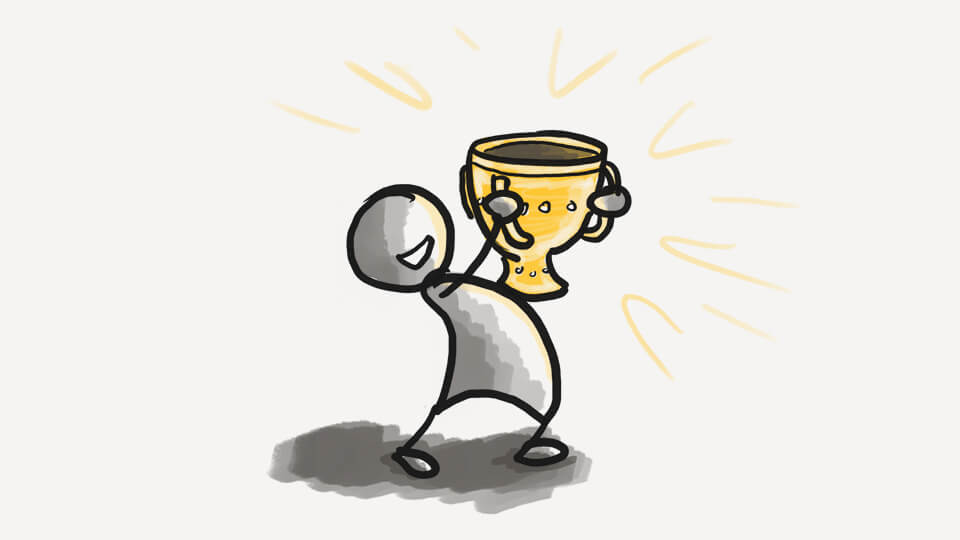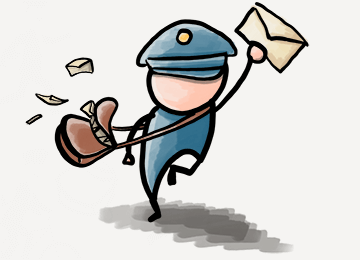The prospect of revisions sends most writers I know into depths of despair, so here’s a useful technique for you that helps make revisions stress-free.
Our brains evolved on the vast plains of the African Savanah in times when obsessive behaviors were at a premium as they helped you escape the many predators. Back then, there were no cozy stone desk jobs in cave office complexes that had our ancestors processing information all day.
One particular quirk of the brain that makes revisions stressful has to do with how humans remember tasks. The moment you decide you need to make a change in your book, rewrite a scene, a paragraph, or something as small as a sentence, your brain attempts to remember it. After all, that’s how we did things for tens of thousands of years.
Am I hungry? Then I better go and find some berries. Find some berries, find some berries, find some berries, playing on a loop.
Find some berries isn’t much different from, say, take out the trash, or rewrite the opening of chapter three.
Ah! Rewrite the opening of chapter three, find some berries, rewrite the opening of chapter three, find some berries, rewrite the opening—
You get the picture. Each time you tell yourself to do something (because that’s how we formulate tasks instinctively), you add to an ongoing mental loop. That loop can hold between 4 and 7 tasks at once, but for most people (including you and me) the number is close to 5.
Now, add to your list buying groceries, picking up kids from school, going to the gym, and you can see how fast the mind becomes cluttered. No wonder you’re stressed. The brain attempts to remember everything, but it is not very good at it, like an amateur juggler trying to juggle too many balls at once.
Which brings us to revisions. Revisions are basically long lists of tasks for you to worry about. Fortunately for you, there’s a mental trick that can help you.
I’ll be using a made-up example, but you should use something from your revision list. Get a pen and some paper.
Close your eyes, and envision the outcome you’re after so that a vague
“Make Frank meet Judith earlier in the story.”
becomes
“Make Frank meet Judith right after the knife fight scene in chapter 2.”
Here’s an important bit, you need to word your task as if it happened already. Like so
“Wrote the scene where Frank meets Judith after the knife fight.”
This should alleviate some tension already, but we’re not done yet. To get this task out of your head, you need to identify the next physical action that needs to take place before you complete your task. It can be “sit in my writing chair,” or “open my laptop” for straightforward tasks, or “take pen and paper” for when you need to do some thinking as a part of completing that task.
In short. Step one: envision the outcome (decide what you want the outcome to be), write it down as if it happened already. Step two: write down the next simple physical action that needs to happen for you to complete the revision.
Try it for yourself.
How does it feel?
Better?
You’re welcome.
Some Science for Those Interested
Mind you, my scientific degree is in Computer Science, not Cognitive Studies so take this with a grain of salt, I am merely sharing what I learned some years back.
Revision-related anxiety is caused by the feelings of doubt and uncertainty about how the said revision is to be accomplished. Rewriting the sagging middle of your novel stresses you out because “rewrite the sagging middle” doesn’t mean much to your brain.
Putting the effort beforehand, so the task becomes “remove three unnecessary scenes,” or “reduce the word count by 50%,” removes the uncertainty. Your brain knows what is expected of it and so it becomes less anxious.
Telling it how to begin with “take some paper,” or “open a notepad” makes complex tasks less daunting, and thus there’s nothing else (revision-related) to stress about.
If you liked this article I would appreciate if you shared it with someone who may find it helpful.

